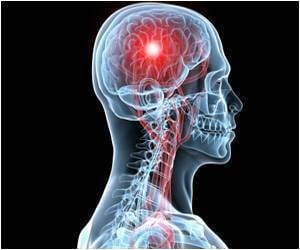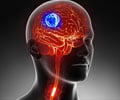Brain and Blood cancers can be treated by using drug combination as a new strategy, reveals study.

- Drug combinations can be a new potential therapy for brain and blood cancers.
- The combination therapy can treat cancers that lack a protein called Phosphatase and tensin homolog(PTEN).
David Plas, PhD, Anna, and Harold W. Huffman Endowed Chair for Glioblastoma Experimental Therapeutics, said, "We found a new combination of drugs that could treat cancers which lack a protein called PTEN. PTEN is an important tumor suppressor, which means that it stops cell growth and division according to the needs of the body."
The previous work carried on experimental drugs in human cancer cells and tumor models found that stopping the production and function of S6K1 Protein may eliminate PTEN- deficient glioblastoma cells.
A glioblastoma is an aggressive form of brain cancer which is difficult to treat using targeted drugs. Tumors present in the specific type of star-shaped cells in the brain may cause glioblastomas.
These tumors are normally present in the cerebral hemispheres, however it can be present anywhere in the brain and the spinal cord.
According to the American Brain Tumor Association, around 12, 390 cases of glioblastomas are estimated to be predicted in 2017.
"Combining the biochemical results with computational analysis gave us the insight that we needed--there are targets in addition to S6K1 that can be hit to trigger the elimination of PTEN-deficient cancer cells."
A combination of LY-2779964 and BMS-777607 drugs were used specifically to eliminate the PTEN-deficient cancer cells.
The author said that the combination of drugs would serve as a new target for oncology. He also added that the data would be useful to investigate the S6K1 as the center for the brain cancers, blood and tissues.
Further, research work is required to study the safety, efficacy of the drugs using animal models with cancer. This may be a goal of preparing the combination for clinical trial.
Ronald Warnick, MD, medical director of the UC Brain Tumor Center and a professor in the Department of Neurosurgery within the UC College of Medicine, said, this kind of study will benefit therapy for brain tumors.
He, said, "There is a desperate need for novel therapeutic agents for patients with glioblastoma."
"This combination of drugs has the potential to become a game-changer."
Phosphatase and Tensin Homolog (PTEN) Protein
Phosphatase and Tensin Homolog (PTEN) is an amino acid protein which is encoded by a PTEN gene.
The PTEN gene was first identified by the mutation in the several types of tumors. Changes in the genetic material or mutations of the protein may cause cancers.
Phosphatase and tensin homolog(PTEN) is a member of the large PTP (protein tyrosine phosphatase) family.
References
- David R. Plas et al. Pharmacologic Targeting of S6K1 in PTEN-Deficient Neoplasia. Cell Reports, February (2017); DOI: 10.1016/j.celrep.2017.02.022
- PTEN function: how normal cells control it and tumour cells lose it - ( https://www.ncbi.nlm.nih.gov/pmc/articles/PMC1133909/ )
- Glioblastoma (GBM) - ( http://www.abta.org/brain-tumor-information/types-of-tumors/glioblastoma.html)
- Brain Tumor Statistics - ( http://www.abta.org/about-us/news/brain-tumor-statistics/)
Source-Medindia















